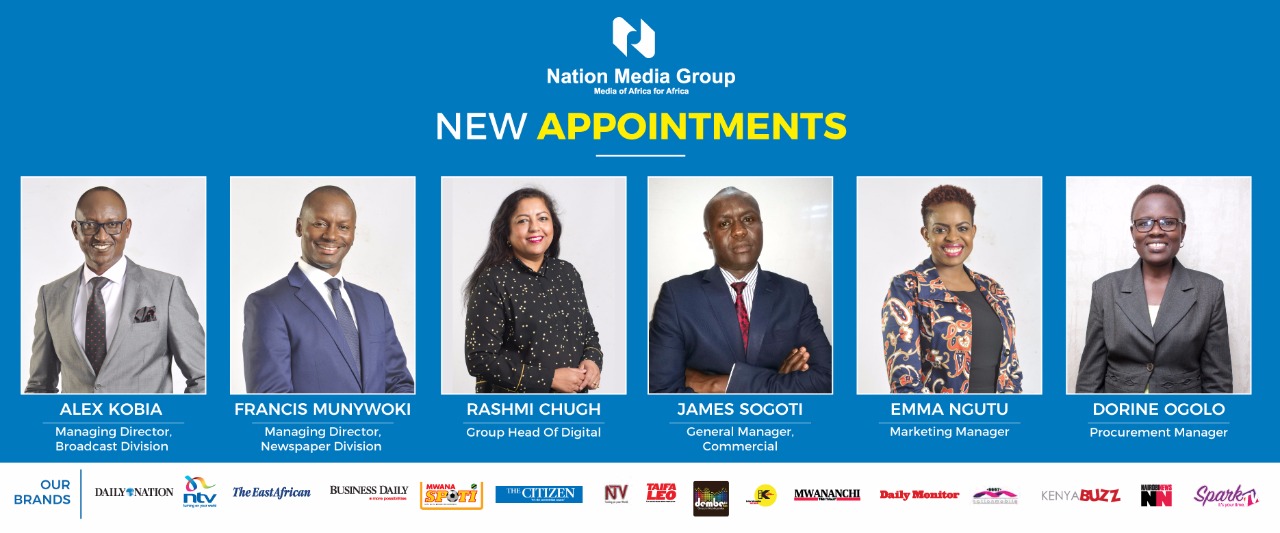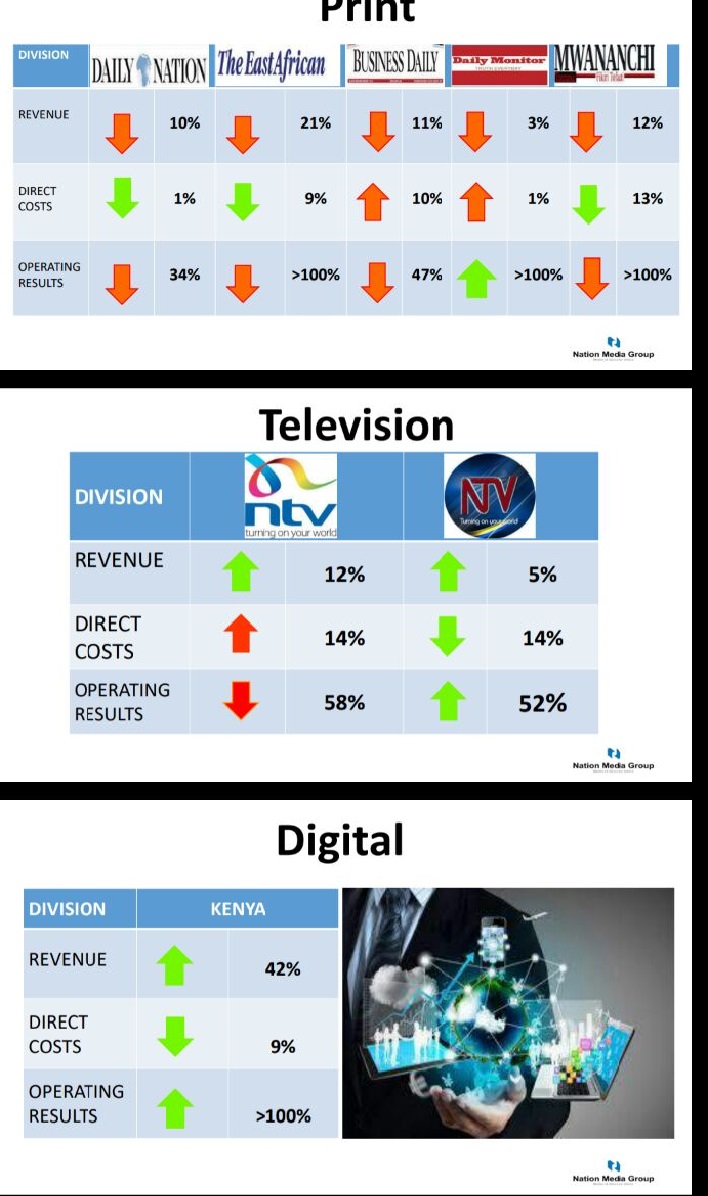After a tough first quarter this year, Nation Media Group is dusting itself for an even tougher battle in the increasingly competitive media industry. The company is restructuring its corporate suite to strengthen and, hopefully, expand its business in an effort to grow revenues after last year’s 20.5% drop in profitability.
Bruised as well by a torrential exit of journalists and other writers, NMG last week announced a new lineup of managers on whose shoulders the fortunes of the group’s businesses will rest, at least for the current financial year. The new faces in management are largely from its internal personnel promoted to take up bigger roles.
Ms Emma Ngutu, previously brand manager, has taken up the role of Marketing Manager, while James Sogoti, who was commercial manager, has been promoted to General Manager, Commercial, to replace Michael Ngugi who left recently and has since joined Royal Media services in a similar capacity.
Ms Dorine Ngolo, previously a procurement officer, is now the procurement manager. Under the new structure, the company has tactfully dropped the positions of directors for marketing, commercial and procurement, an indication it is keen on keeping its wage bill low.
Earlier the company had announced the appointment of Francis Munywoki as managing director of Nation Newspaper Division and, recently, Alex Kobia as Managing Director for NMG’s broadcast division.

These appointments have also revealed how deep the January restructuring cut. The retrenchment pushed out directors of procurement, marketing and advertising, among others, as the management moved to trim fat and refocus the business by putting younger hands in charge. The appointments also included the creation of the new position of head of digital, which has gone to Rashmi Chugh.
But eyes will be on Kobia and Munywoki to grow the popularity of NTV and Nation newspapers respectively, which have been hit by a drastic drop in audience. That will in turn throw the ball to Mr Sogoti to increase advertising revenues even if viewership and listenership do not improve. The 2017 results showed the newspaper and TV businesses contracted while digital made a marginal leap.
READ: S.K. MACHARIA SWEEPS KTN WITH FRESH RAID FOR EDITORS
Which makes Rashmi Chugh, who joined the NMG from HT Media India where she was the Business Head and Publisher for their news websites, an interesting person to watch. NMG has been toying with the idea of being a digital first media house, supported by convergence of its print, broadcast and digital functions.
It even recently broad on board a new director, Mr Stephen Dunbar-Jonshon, the President, International, of the New York Times Company, one of the most successful media houses in the world in print and online.
Rashmi Chugh will spearhead this new tech-driven business model that seeks to align print and broadcasting divisions to a digital-first approach.
Local media houses are investing in a digital future, restructuring newsrooms and diversifying business models to fit into the changing media environment. Radio Africa has converged its operations, giving first news priority to digital, while Standard is in the process of convergence after appointing former KTN Swahili managing editor Kizito Namulanda to head the transition.

The shift from print to digital has presented challenges to media houses not only in Kenya but globally as they seek new sources of revenue and target new audiences. This decision has been informed by the realization that over-relying on the print section for advertising revenue has resulted in loss of editorial independence due to media capture.
Most media houses in Kenya get nearly 70% of their advertising revenue from both the national and county governments and other state agencies.
READ ALSO: SAFARICOM’S ANSWER TO WHATSAPP & FACEBOOK
Since the government stopped directly advertising in local dailies and instead introduced MyGov, a publication of the Government Advertising Agency that is published in local newspaper once or twice per week, media houses profits have fallen sharply.
Even on the digital front, it won’t be free lunch for Nation and other media houses. Google and Facebook already take a bigger pie of digital advertising and a number of local websites and other players are also vying for a piece of the digital action.
But for Nation, the stakes are very high. The company is the industry leader and pace setter and listed at the Narobi Securities Exchange where shareholders are hungry for profit and dividend.












Leave a comment